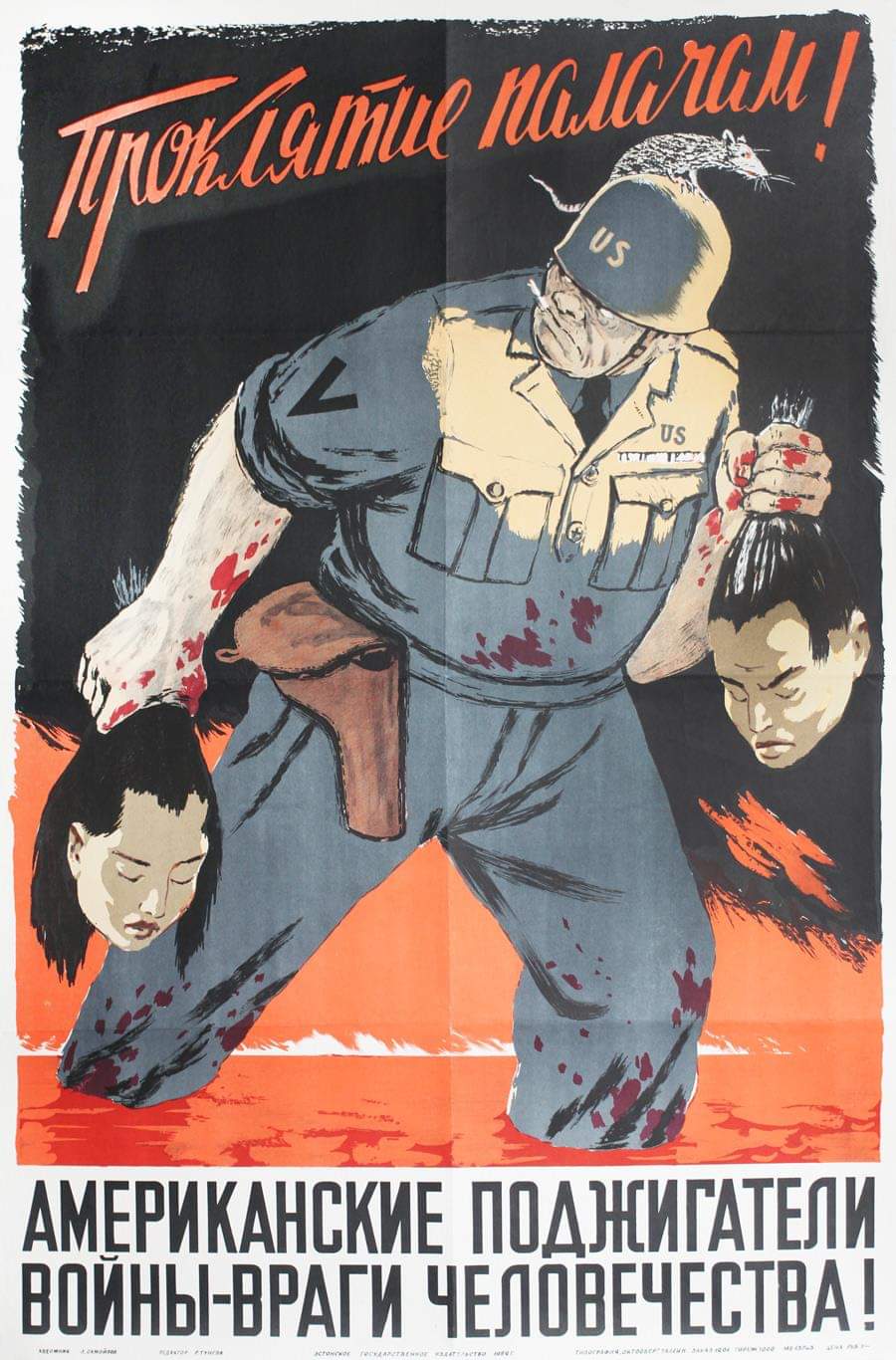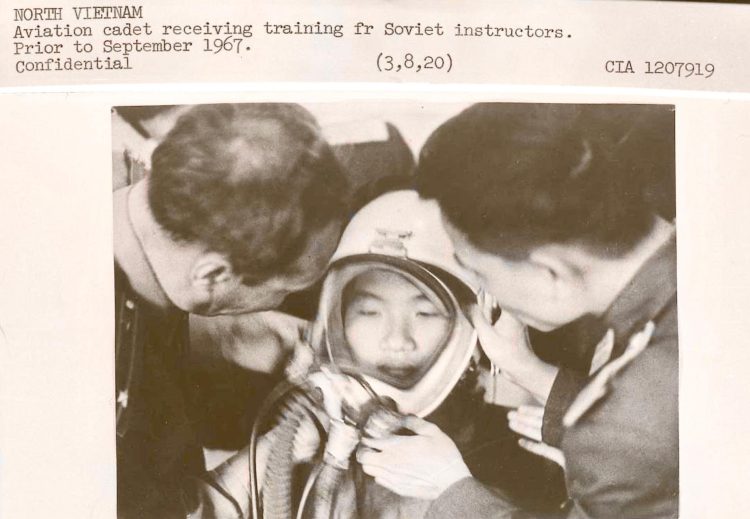For today’s Pic of the Day, I managed to dig up a declassified photo of a North Vietnamese aviation cadet being trained by the Soviets sometime “prior to September 1967” (according to writing on the photograph). As you likely already know, the Soviet Union played a large role in backing the North Vietnamese during the War. The Chinese did as well.
As a matter of fact, the Vietnam War, which engulfed Southeast Asia from the late 1950s until 1975, was marked by the heavy involvement of several foreign powers. While the United States’ involvement is perhaps most widely known, the Soviet Union played a significant but often less-publicized role in supporting North Vietnam. The Soviet Union’s influence in North Vietnam during the Vietnam War was multifaceted, encompassing military, economic, and ideological support.
Military Support
The Soviet Union provided substantial military assistance to North Vietnam, which was critical in sustaining the North Vietnamese war effort. This support included the supply of weapons, ammunition, and military equipment. The Soviets sent advanced air defense systems, such as the SA-2 surface-to-air missiles, which were instrumental in countering the U.S. air superiority. Soviet advisors trained North Vietnamese troops in the use of these sophisticated weaponry systems, significantly enhancing North Vietnam’s defensive capabilities.
In addition to air defense, the Soviet Union supplied tanks, artillery, and small arms. Soviet-made AK-47 rifles became synonymous with North Vietnamese forces. Soviet military aid also extended to naval support, providing torpedo boats and coastal defense missiles. This comprehensive military assistance was crucial in bolstering North Vietnam’s capacity to sustain prolonged combat against a technologically superior adversary.
Economic and Technical Assistance
Beyond military aid, the Soviet Union provided significant economic and technical assistance to North Vietnam. This support included the construction of infrastructure, such as roads, bridges, and power plants, which were essential for the North Vietnamese war effort and post-war recovery. Soviet engineers and technicians were dispatched to North Vietnam to assist in these projects, bringing expertise and technological know-how.
The Soviets also provided economic aid in the form of food, fuel, and industrial goods, helping to sustain the North Vietnamese economy during the war. This assistance was crucial in maintaining the morale and logistical capabilities of the North Vietnamese government and its armed forces.
Ideological Support and Propaganda
The Soviet Union’s influence in North Vietnam extended to ideological support and propaganda. The Soviet model of communism served as an ideological foundation for the North Vietnamese leadership. Soviet advisors worked closely with the North Vietnamese Communist Party, guiding political organization, governance, and propaganda techniques.

Soviet propaganda efforts aimed to bolster North Vietnamese morale and promote anti-American sentiment both domestically and internationally. Soviet media outlets portrayed the Vietnam War as a struggle against imperialism and a fight for national liberation, framing North Vietnam’s cause within the broader context of global communist solidarity.
Diplomatic Maneuvering
Diplomatically, the Soviet Union played a key role in supporting North Vietnam on the international stage. The Soviets worked to garner support for North Vietnam from other socialist countries and neutral nations. They used their influence in international organizations, such as the United Nations, to advocate for North Vietnam’s position and to criticize U.S. actions in Vietnam.
The Soviet Union also played a crucial role in the diplomatic negotiations, eventually ending the war. Soviet diplomats were actively involved in the Paris Peace Talks, where they supported North Vietnam’s negotiating positions and helped to broker the final peace agreement in 1973.
Impact on the War and Legacy
The Soviet Union’s influence in North Vietnam had a profound impact on the course of the Vietnam War. Soviet military and economic assistance enabled North Vietnam to sustain its war effort despite the immense pressure from U.S. military operations. The ideological and diplomatic support provided by the Soviets also helped to legitimize and strengthen the North Vietnamese government.
The legacy of Soviet influence in North Vietnam can be seen in the enduring relationship between Vietnam and Russia. After the war, Vietnam continued to rely on Soviet support for its reconstruction and development. The close ties forged during the Vietnam War have persisted, with Russia remaining an important partner for Vietnam in the post-Soviet era.
In conclusion, the Soviet Union’s influence in North Vietnam during the Vietnam War was extensive and multifaceted. Through military aid, economic support, ideological guidance, and diplomatic efforts, the Soviet Union played a critical role in shaping the outcome of the conflict and supporting North Vietnam’s eventual victory. This influence left a lasting impact on Vietnam, shaping its post-war development and enduring relationship with Russia.
—
Disclaimer: SOFREP utilizes AI for image generation and article research. Occasionally, it’s like handing a chimpanzee the keys to your liquor cabinet. It’s not always perfect and if a mistake is made, we own up to it. In a world where information comes at us in tidal waves, it is an important tool that helps us sift through the brass for live rounds.










COMMENTS